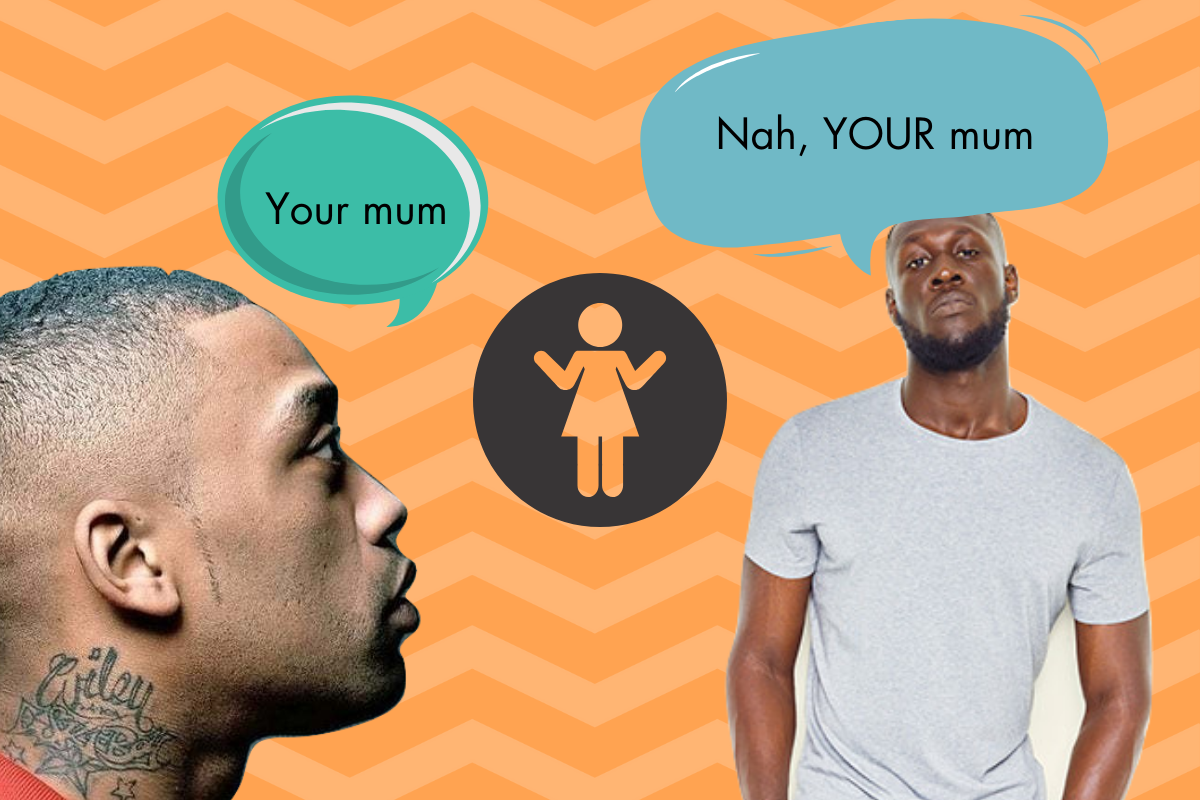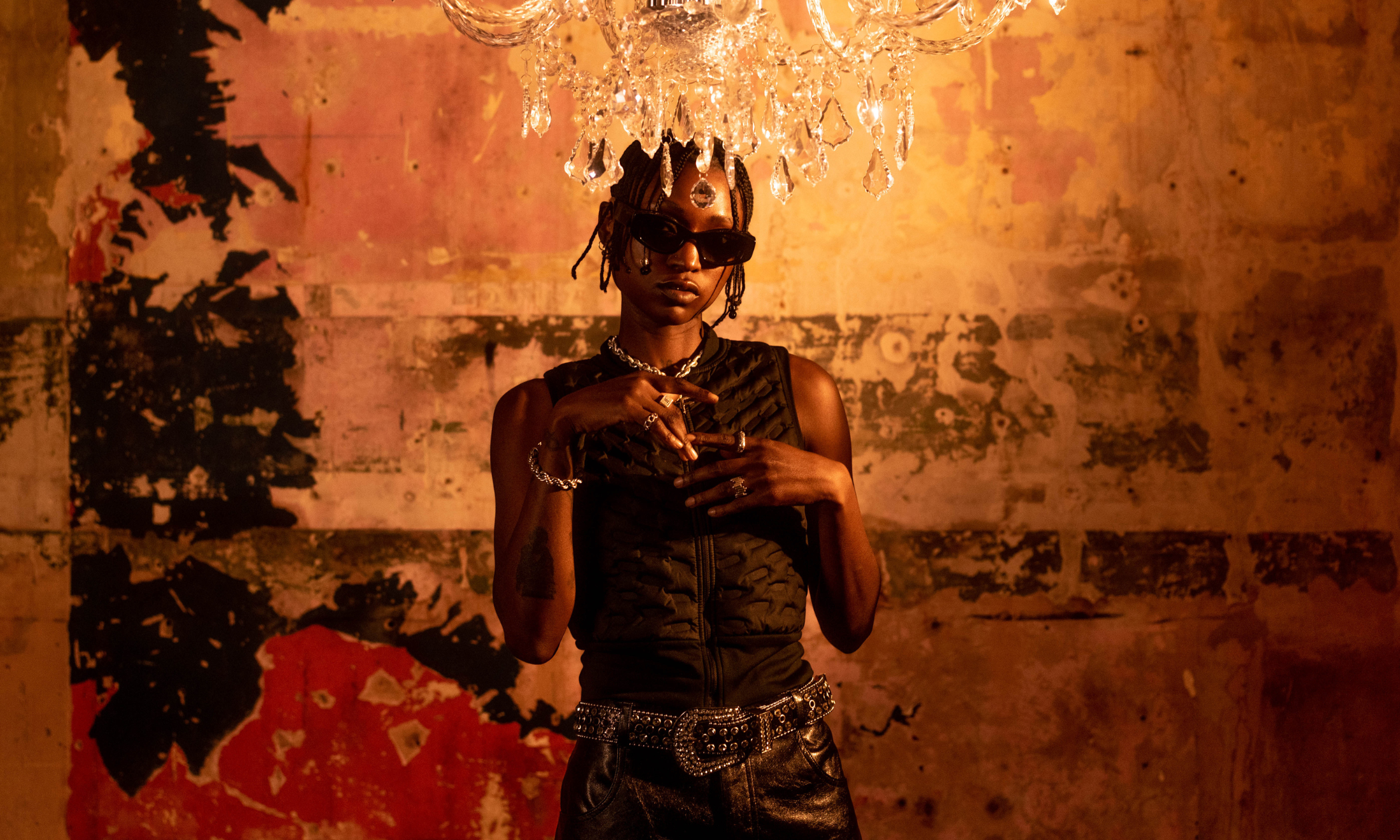
The Wiley vs. Stormzy beef reminds us of grime’s issue with women
In the midst of this return to what grime does best, Rahel Aklilu argues that we should not simply accept MC's jibes about mums, sisters and girlfriends.
Rahel Aklilu
09 Jan 2020
Photography via press shots | Composite image by Tara Joshi
With Wiley and Stormzy’s war of words grabbing headlines and generating more meme content than ever before, it has been lauded as “authentic” grime, harking back to the days of clashing in East London basements and underground raves with one mic for every 200 men. Grime is a lyrical joust, and clashes give opportunity for MCs to flex their muscles of clout and technical prowess.
The celebrity status of the two opponents has also upped the agenda, with both of them representing two very different stages of what could be any rapper’s career. On the one hand, Wiley holds for many the revered “Godfather” status as one of the originators of grime way back when it was just seen as a dark offshoot of garage, with a couple of young black boys spitting bars in parks. Through his various affiliations with Roll Deep and BBK amongst others, he has become a cultural mainstay from early suppression of the genre through the infamous Form 696 all the way through to grime artists such as Skepta winning the Mercury Prize to the mainstream embrace.
On the other hand, we have Stormzy, the “new boy” who broke into the scene of grime and rap to build an empire based as much on the brand of personality as the quality of his music. Since blending gospel and R&B with grime and rap on his critically and commercially acclaimed debut Gang Signs and Prayer, Stormzy has arguably become bigger than grime. Hence the excitement when he hit back to Wiley’s initial ‘Eediyat Skengman’ diss with ‘Disappointed’ – as one of the most successful artists in the country who has earnt his stripes with clashes and cyphers, there was nothing left for Stormzy to prove. Except ego.
The initial lyrical exchange was as expected: a comment on how one was a washed-up, bitter old man, and the other a pop-sellout. However, in trying to come out on top as the “King of Grime”, both have traded prolific insults regarding the other’s mother. In ‘Eediyat Skengman 2’, Wiley’s comments about “ripping the weave off” Stormzy’s mother fuelled ‘Still Disappointed’, where the South Londoner mocks Wiley about having to move his mother out of the country for her safety due to fear of reprisals. From this descended hundreds of memes and jokes online regarding Wiley’s inability to be a “real man” and protect his mother. In short, both arguably use the most important woman in the other’s life to take shots at his opponent’s “masculinity”.
“Insulting each other’s mothers is nothing new in music – however, in the context of the history of grime, it points to a wider issue around how the mistreatment of women isn’t taken as seriously as it should be”
Insulting each other’s mothers is nothing new in music, especially in genres so competitive – whether it be hip-hop, rap or grime. However, in the context of the history of grime, it points to a wider issue around how the mistreatment of women isn’t taken as seriously as it should be. Even Wiley himself, synonymous with grime, has faced underage sex allegations online from Dizzee Rascal (which he has since rebutted).
When it’s not somebody’s mother, it’s their girlfriend or partner or sister. With Wiley’s younger brother Cadell wading into this current war of words, even he can’t resist partaking in the misogyny of attacking his opponent’s woman relative, predictably resorting to Stormzy’s sister. The infamous beef between North London’s Chip and…what seemed like everybody else in grime was another pivotal moment fondly remembered for the excitement and attention it shone on the dying art of clashing and on grime itself, at that point seen as something outdated and anachronistic as Afroswing and UK Rap were beginning to accelerate through the charts in 2015 and 2016. On ‘Coward’, Chip mocks Tinie’s mum in a Nigerian accent, generating an onslaught of memes.
“We have taken misogyny for granted and any attempts to call it out have been dismissed as a misunderstanding of the ‘raw’ nature of the genre and an attempt to water it down for the mainstream”
Even as people seem to ask the right questions, about how grime has sidelined women – most notably black women – misogyny has been poisonously laced into our common understanding of its dynamics. We, as an audience or even as performers, have taken it for granted and any attempts to call it out have been dismissed as a misunderstanding of the “raw” nature of the genre and an attempt to water it down for the mainstream.
These attitudes have become so ingrained in our understanding that even whilst calling ourselves feminists or claiming to dismantle the patriarchy elsewhere, we are just as complicit when we egg it on by partaking in the online discourse, laughing at the jokes or screaming along to the bars at raves.
One only has to look at the 2018 incident at Mode FM of physical assault against a woman MC, or the case last year of revenge porn being used to score points by Birmingham MC Tana in a clash with Ten Dixon in the recently resurrected Lord of the Mics, to accept that there is a long way to go before grime respects women and stops using them as playthings to score points against another man’s ego or reputation.
“There is a long way to go before grime respects women and stops using them as playthings to score points against another man’s ego or reputation”
Being a woman, a feminist and a grime fan is complex and contradictory, especially considering how mistreatment towards women has historically been ignored, if not normalised. Amidst the commercial and cultural commodification of culture, Wiley (and what he represents) are seen as the last mainstays of what is “authentic” since the genre went mainstream. Big-name brands collaborate with formerly demonised rappers on multi-million-pound deals, they gain thousands of fans from around the world on social media and are on the front covers of high fashion magazines and their songs as sung by thousands at music festivals.
Looking at the jarring success of viral internet sensation “Alex from Glasto”, or Drake’s seemingly out-of-the-blue BBK affiliation, it is understandable that grime fans want to protect the legacy of a scene that everybody now wants a piece of. However, preserving the legacy and culture of grime does not mean that the misogyny behind it must also be protected in the name of cultural heritage. Whether participating or spectating, we need to be more vocal in uprooting and untangling these attitudes and ridding grime of its misogyny once and for all.









